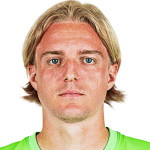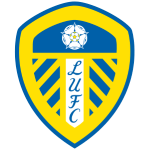Across all English football divisions, clubs are renowned for their rich history, whether they have been a dominating force or not in recent days. Leeds United is one of them. Leeds United FC have been in turmoil in recent days, as they face a relegation and promotion battle every season. Leeds United's history goes a long way as they have been competing in the English football division for 105 years, having been established in 1919. Leeds United FC will compete in the 2025-26 season in the Premier League, after being relegated in the 2023-24 season, and in the 2024-25 season, they were crowned as the champions of the EFL, achieving first place among 24 clubs. Under their current manager, Daniel Farke, they have shown utter dominance in the EFL for the first time in Leeds United history. Daniel Farke's possession-based strategy, with a slight blend of the gegenpressing technique, suited perfectly to their old-school 4-2-3-1 formation, which made them an unstoppable force in the EFL.
Leeds United is a professional football club that is famous for its men's football team, based in Leeds, West Yorkshire, England. The Club started its journey as Leeds City, but in 1919, it changed its name to Leeds United, and it was the first and last time in Leeds United history that they changed their club's name. Leeds United FC started its journey with a bunch of amateur footballers from Yorkshire. Leeds United was one of the teams which was not included in the Premier League after its introduction in 1920. However, Leeds United FC achieved promotion in the very next season.
In the 1964-65 season, Leeds United reached the FA Cup final, where they fell short against Liverpool, and in that season, they also gave a tough fight to Leeds United rivals, Manchester United. Leeds United finished in second place, and Manchester United were crowned as the champions.
Straight back in the current time, Leeds United were in turmoil, as they were facing a promotion and relegation battle regularly, and on top of that, they were in the mud of debt under their chairman, Peter Ridsdale. The first indication that the club was in financial trouble was the sale of Rio Ferdinand to Manchester United for approximately £30 million. On 21 January 2005, Ken Bates bought the club. Under Blackwell, Leeds United reached the Championship play-off final, which they lost to Watford.
In the 2008-2009 season, Simon Grayson was appointed as Leeds United's boss. Under Grayson, Leeds United made the play-offs once again, but were beaten over the two legs of the semi-finals by Millwall. In 2009–10, Leeds secured their best start ever to a season, and caused a major upset in the third round of the FA Cup by beating Manchester United at Old Trafford. On 21 November 2012, Middle East-based private equity group GFH Capital finalized a deal for a protracted takeover of Leeds, buying a 100% stake of the club. It was also announced that Ken Bates would remain as chairman until the end of the 2012–13 season and then become club president. The takeover was officially completed on 21 December 2012. On 17 July 2020, after sixteen years out of the English top tier, Leeds United were promoted back to the Premier League.













-1752408739309.webp?w=256&q=80)




-1771490745784.webp)

-1770759521192.webp)










